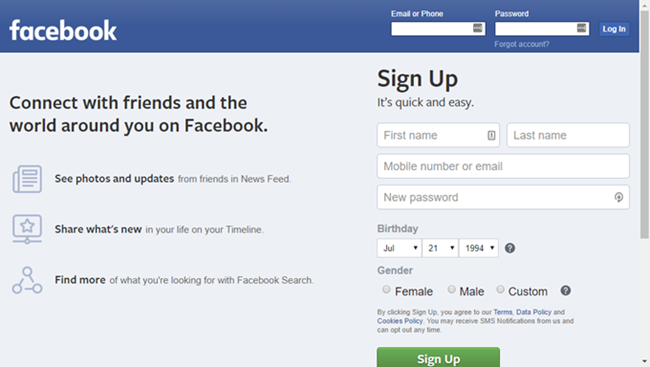You just need to know where to look
It used to be that if you wanted someone found, you would hire a private investigator and let them “work their sources”. Of course you can still do that but private investigators are expensive. If you are looking for someone, you can quite often find them on your own using the Internet.
A lot of people try their level best to avoid being online but truth be told, you end up online these days whether you like it or not. So if you are looking for someone, you just have to know the right online places to look.

Social Media
The first obvious port of call is obviously social media, in the form of Facebook, Twitter, and LinkedIn. Twitter is very limited in what they can tell you about a person (apart from their photo and location – if they enter that information).
But Facebook and LinkedIn? Well, that’s a whole different ball-game because they are designed for people to reveal everything about themselves – and they do.
I have read books by former US Marshals involved in the Witness Protection Program who said that a lot of people in the program were eventually found by their enemies because they kept updating their social media pages!

Whether or not the person you are looking for is on Facebook will depend on how old they are and how “into tech” they are. Generally speaking, those under 50 will most likely have a Facebook account. Anyone over 50….well, then it’s a tossup.
Finding the person will depend on things like :
- how unique the person’s name is. Zachary Zucker is more likely to show up clearly than John Smith.
- If they are still living in the same area where you saw them last. If they have a common name and have moved to the other side of the world, identifying them might be a problem.
- If they have information on their profile that makes it obvious it is them – photos, former schools, former employers, etc.
Another thing to try (if you know it) is to see if their former school has an alumni Facebook group. Most schools have Facebook groups set up by former students who upload old class photos and talk about the old days. You might find the person there.

If you strike out on Facebook, try LinkedIn next. I have had an incredible amount of luck with LinkedIn because it has become the one-stop place for anyone wanting to build a career. This means there will be photos of the person, their entire work history, location, schools, etc.
It can also be incredibly satisfying to look up the former school bullies and discover they are flipping burgers in Burger King or cleaning toilets!
Search Engines

If the person is not on social media, the next step is the search engine which more or less means Google.
Google can throw up a huge amount of information about people. Newspaper articles can be indexed on Google so maybe the person did something noteworthy that got them into the news?
Or maybe they committed a crime and went to prison, in which case the trial would have been covered? Then there are the obituaries which told me a friend was dead when he suddenly dropped off the radar one day. Finally, see if the person has their own website.
Here are some specialist search engines you could also try. Most will give you basic information with a nominal fee required to access more advanced information. But the basic information will cover things like names, addresses, relatives, and maybe phone numbers.
The slightly annoying thing though is that many of these websites cover the US only.
Phone Books

Many countries now publish their phone directories online, making the days of getting bulky print books a relic of the past. A Google search of “phone book” + “your country” will bring up the directories. But when checking for this article, the site for US numbers was down. The British equivalents are BT and 192 Directory Enquiries.
Prison Databases

If you discover from Google that they have gone to prison, or you just want to tick prison off the list, the next step is to look on the right databases.
In the UK, there is no actual database. Instead, you must email the Prison Service and request that they look for you. Then the prisoner has to consent to their location being given
However, in the US, forget about prisoner privacy! The Federal Bureau of Prisons maintains a database for federal inmates. And this website links to prisoner locator tools for every state in the US.
Local Newspaper Archives
One other thing you could try are local newspaper archives. Some newspapers allow search engines to index their stories, but many do not. Instead, they put their archives behind paywalls. Newspapers like the New York Times and Washington Post are notorious for this, as well as many smaller local community newspapers.
So see if newspapers in the region have archives, pay the nominal fee, and have a look around for the person you’re looking for. I have had success before so it’s worth it.
If All Else Fails – Follow The Friends & Relatives
Now don’t get me wrong. I don’t mean in a creepy stalker-ish way, hiding in the bushes with a long-range camera lens. What I mean is that if the person you seeking is not showing up – and you know their friends and relatives – look for them. If they are in touch with the person, you could find them that way.
This is probably the best bet if someone has changed their name due to marriage and you don’t know the new name. Look in the friends and relatives’ friends lists on social media – see if the person is there under a new name.
If you don’t know the relatives, go to ancestry.com . Enter the person you’re looking for then it will tell you their relatives’ details. It’s all public record so you’re not doing anything wrong.




